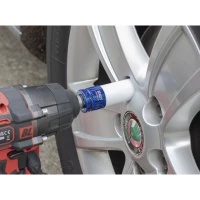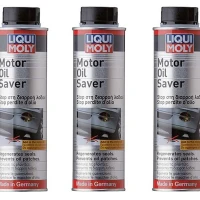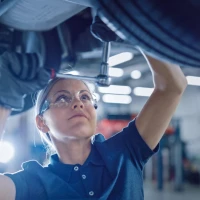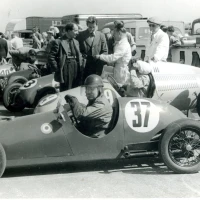The use of non-recommended coolant, tap water, or other unacceptable fluids in a cooling system can cause significant and costly damage to the cooling system and the engine as well. Dave Talbot, NRF Technical Specialist explains some common mistakes to avoid when maintaining cooling systems
A cooling system consist of a water pump that moves the coolant, a radiator that dissipates the engine heat, a thermostat that allows the system to open and close, some pipelines where the coolant flows and one or more temperature sensors.
The radiator has one (or few) inlets and one (or few) outlets. Hot coolant enters through the upper pipe, forced by the flow generated by the water pump and comes out through the lower pipe. In this journey, by the action of the flowing air, the coolant temperature decreases. In the lower pipe of the radiator, coolant is recirculated to the engine again, doing a new cooling cycle.
Possible System Failures External agents: The radiator is an element that is in direct contact with the outside and therefore sensitive to shocks, corrosion by salt or other pollutants present in the environment.
Use of non-recommended liquids: Using fluids not recommended by the manufacturer (tap water, coolants other than those approved or recommended, distilled water, etc.) can damage the system, especially the radiator.
Common Mistakes Tap water Tap water has in dissolution a lot of other substances, some of them are ionic compounds (salts). Salts in dissolution and high temperature can be corrosive for ferrous metals the engine is made from. The continued action of those substances gradually oxidises the engine metal, creating rust deposits.
To the naked eye, the coolant in the expansion tank turns rusty brown. As time passes, this rust turns into corrosion, causing more sediment, and it tears off some of the metal flakes from the more damaged elements, which seize the radiator’s tubes, forcing it to operate under overpressure. Eventually the radiator will start to leak.
Unapproved Coolants Unapproved coolant is normally tap water with some dye, and it may seem very similar to a normal, good quality coolant. In order to reduce the costs, those products didn’t have any system protector additives (anti rust, stabilisers, anti-emulsifier or acid neutralisers). It takes a little more time, but the action in the system is the same as using tap water.
Distilled water Many people think that adding distilled water to the cooling system is harmless. When you add distilled water, it is because the vehicle ran out of coolant. Mixing distilled water with coolant results on the dilution of the coolant, reducing it’s properties and making the long term effect exactly the same as using tap water or an unapproved coolant. Mix distilled water with pure and clean coolant only when recommended by the manufacturer.
Non-recommended Coolants The use of non-recommended coolants in a cooling system can lead to failure or complete breakdown. Non-recommended coolant may not be compatible with some elements of the system (rubber hoses, aluminium or even copper), with the same negative effects as the previous improper fluids.
Always use good quality coolant that is recommended by the manufacturer. The use of unapproved liquids will void the product’s warranty.
To read more of this technical article or download the entire article click
here. There are lots more Tech Tips to view, and they are all searchable, on
TechTips.ie.
 The cooling system: 1. Radiator, 2. Water pump, 3. Fan, 4. Thermostat, 5. Heater, 6. Heating valve, 7. Vehicle’s engine, 8. Air flow.
The cooling system: 1. Radiator, 2. Water pump, 3. Fan, 4. Thermostat, 5. Heater, 6. Heating valve, 7. Vehicle’s engine, 8. Air flow.
 Corrosion inside a radiator from the use of improper coolant
Corrosion inside a radiator from the use of improper coolant
 Rust sediments in the radiator prevent proper flow and create over-pressure & over-heating
Rust sediments in the radiator prevent proper flow and create over-pressure & over-heating














